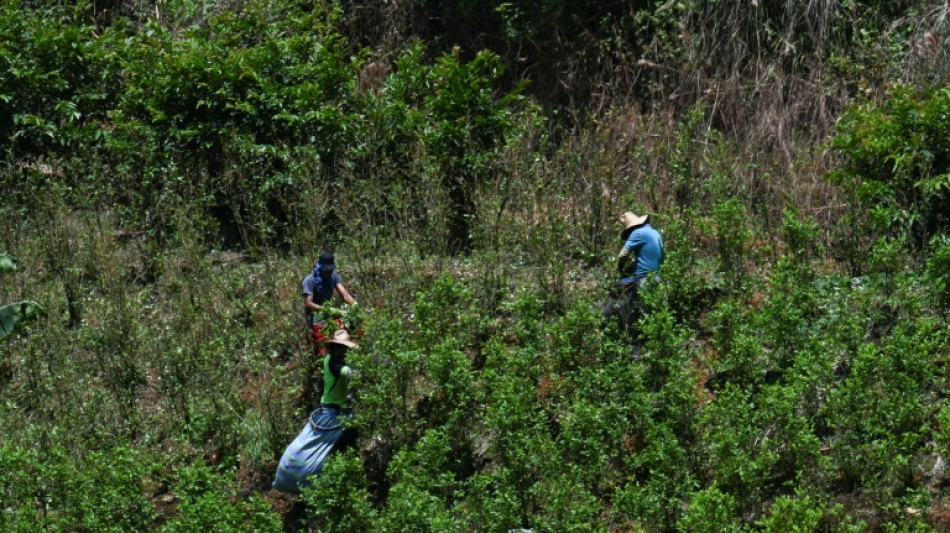
-
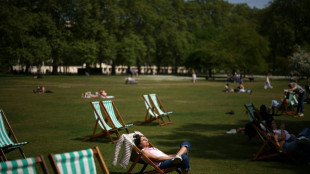 UK experiences sunniest year on record
UK experiences sunniest year on record
-
Australia holds first funeral for Bondi Beach attack victims
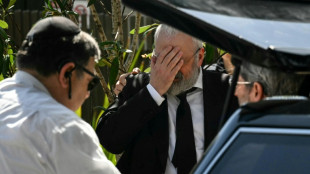
-
 FIFA announces $60 World Cup tickets after pricing backlash
FIFA announces $60 World Cup tickets after pricing backlash
-
Maresca relishes support of Chelsea fans after difficult week

-
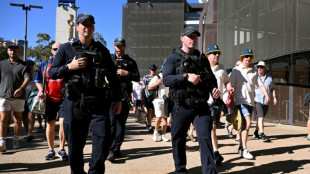 Players pay tribute to Bondi victims at Ashes Test
Players pay tribute to Bondi victims at Ashes Test
-
Costa Rican president survives second Congress immunity vote
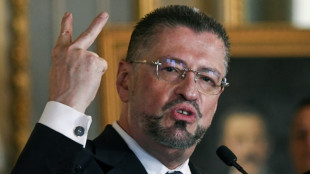
-
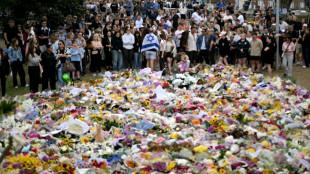 Married couple lauded for effort to thwart Bondi Beach shootings
Married couple lauded for effort to thwart Bondi Beach shootings
-
Australia holds first funerals for Bondi Beach attack victims
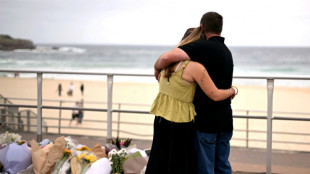
-
 Trump has 'alcoholic's personality,' chief of staff says in bombshell interview
Trump has 'alcoholic's personality,' chief of staff says in bombshell interview
-
Rob Reiner killing: son to be charged with double murder
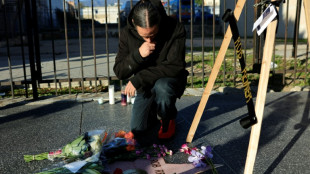
-
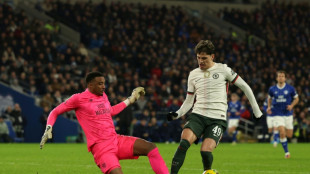 Chelsea battle into League Cup semis to ease pressure on Maresca
Chelsea battle into League Cup semis to ease pressure on Maresca
-
Netflix boss promises Warner Bros films would still be seen in cinemas
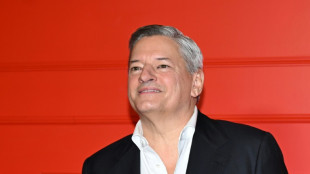
-
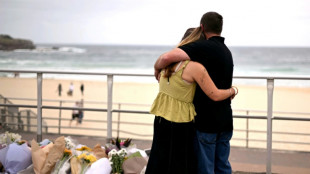 Grok spews misinformation about deadly Australia shooting
Grok spews misinformation about deadly Australia shooting
-
Stocks mostly retreat on US jobs, oil drops on Ukraine hopes
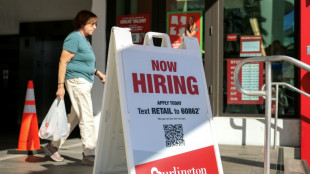
-
 Artificial snow woes for Milan-Cortina Winter Olympics organisers
Artificial snow woes for Milan-Cortina Winter Olympics organisers
-
Trump imposes full travel bans on seven more countries, Palestinians

-
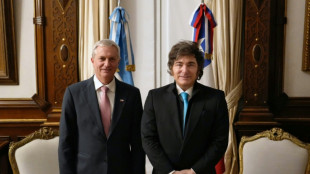 New Chile leader calls for end to Maduro 'dictatorship'
New Chile leader calls for end to Maduro 'dictatorship'
-
Shiffrin extends slalom domination with Courchevel win

-
 Doctor sentenced for supplying ketamine to 'Friends' star Perry
Doctor sentenced for supplying ketamine to 'Friends' star Perry
-
Tepid 2026 outlook dents Pfizer shares
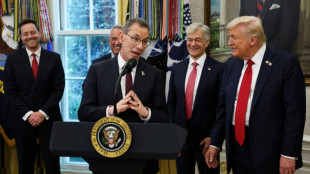
-
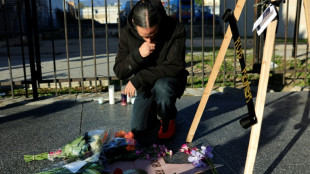 Rob Reiner murder: son not medically cleared for court
Rob Reiner murder: son not medically cleared for court
-
FIFA announces $60 World Cup tickets for 'loyal fans'

-
 Dembele and Bonmati scoop FIFA Best awards
Dembele and Bonmati scoop FIFA Best awards
-
Shiffrin dominates first run in Courchevel slalom

-
 EU weakens 2035 combustion-engine ban to boost car industry
EU weakens 2035 combustion-engine ban to boost car industry
-
Arctic sees unprecedented heat as climate impacts cascade

-
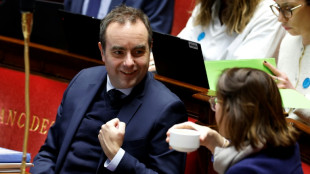 French lawmakers adopt social security budget, suspend pension reform
French lawmakers adopt social security budget, suspend pension reform
-
Afrikaners mark pilgrimage day, resonating with their US backers
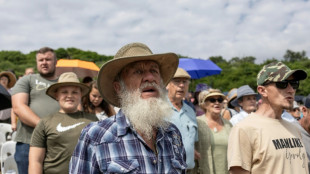
-
 Lawmakers grill Trump officials on US alleged drug boat strikes
Lawmakers grill Trump officials on US alleged drug boat strikes
-
Hamraoui loses case against PSG over lack of support after attack

-
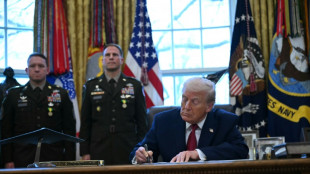 Trump - a year of ruling by executive order
Trump - a year of ruling by executive order
-
Iran refusing to allow independent medical examination of Nobel winner: family

-
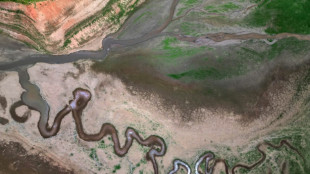 Brazil megacity Sao Paulo struck by fresh water crisis
Brazil megacity Sao Paulo struck by fresh water crisis
-
Australia's Green becomes most expensive overseas buy in IPL history

-
 VW stops production at German site for first time
VW stops production at German site for first time
-
Man City star Doku sidelined until new year

-
 Rome's new Colosseum station reveals ancient treasures
Rome's new Colosseum station reveals ancient treasures
-
EU eases 2035 combustion-engine ban to boost car industry

-
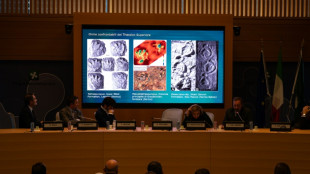 'Immense' collection of dinosaur footprints found in Italy
'Immense' collection of dinosaur footprints found in Italy
-
US unemployment rises further, hovering at highest since 2021

-
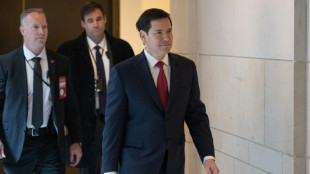 Senators grill Trump officials on US alleged drug boat strikes
Senators grill Trump officials on US alleged drug boat strikes
-
Filmmaker Rob Reiner's son to be formally charged with parents' murder
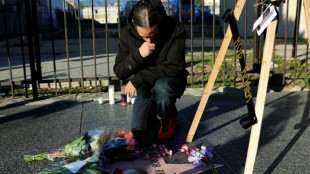
-
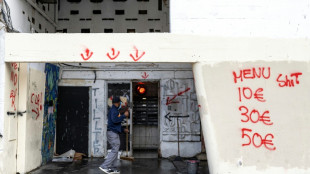 Shift in battle to tackle teens trapped in Marseille drug 'slavery'
Shift in battle to tackle teens trapped in Marseille drug 'slavery'
-
Stocks retreat on US jobs, oil drops on Ukraine hopes
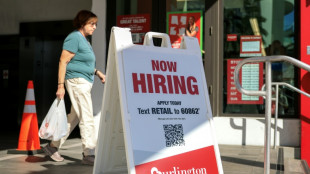
-
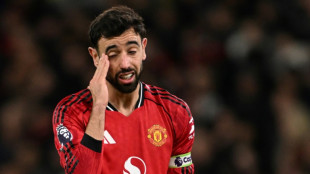 Manchester United 'wanted me to leave', claims Fernandes
Manchester United 'wanted me to leave', claims Fernandes
-
Serbian President blames 'witch hunt' for ditched Kushner hotel plan
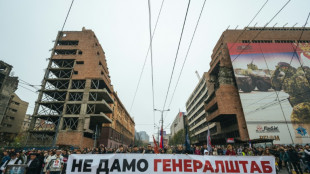
-
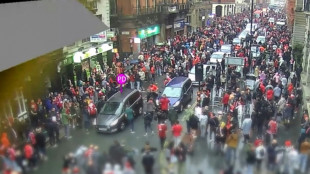 Man who hit Liverpool parade jailed for over 21 years
Man who hit Liverpool parade jailed for over 21 years
-
Sahel juntas would have welcomed a coup in Benin: analysts

-
 PSG ordered to pay around 60mn euros to Mbappe in wage dispute
PSG ordered to pay around 60mn euros to Mbappe in wage dispute
-
BBC says will fight Trump's $10 bn defamation lawsuit
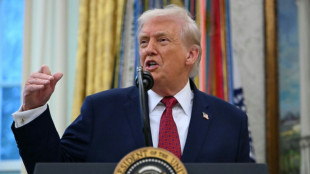

Are US strikes hurting Latin America's drug trade?
US military strikes that Washington claims have targeted "narco-terrorists" ferrying drugs to American soil are having little to no impact on Latin America's bustling narcotics trade, experts say.
The strikes have killed at least 37 people, most of them in Caribbean waters, according to US figures.
Relatives and the home governments of many of the dead deny involvement in drug-running, but experts say the killings are illegal even if they target known narcotics traffickers.
The operations have raised questions in the region about US President Donald Trump's endgame.
Is this truly another battle in the global war on drugs -- and if so, is the United States going after the right people? Or is this something geopolitically broader?
- Wrong target? -
The US administration's actions in the Caribbean "will have zero impact on drug trafficking," said Laura Bonilla of the Pares research center in Colombia, the world's biggest cocaine producer -- most of it destined for the United States.
More drugs are exported via the Pacific -- from ports in Colombia, Mexico, Peru and Ecuador -- than via the Caribbean Sea, where the strikes have been focused thus far.
According to the government in Ecuador, which is plagued by drug gangs, 70 percent of the cocaine destined for the rest of the world leaves from its Pacific ports.
After several strikes in the Caribbean, the United States on Wednesday announced its first attack in the Pacific, with at least two people reported dead.
Experts point out that transnational cartels are the primary buyers and distributors of drugs -- not the Venezuelan or Colombian groups blamed by the Trump administration.
Neither Venezuela nor Colombia, whose citizens have been targeted in the strikes, are major exporters in their own right.
Bonilla said she questions the Pentagon's assertion that guerrilla fighters from Colombia's leftist National Liberation Army (ELN) were among those killed by US forces.
"A total lie.... The ELN doesn't take boats out in the Caribbean because the ELN doesn't own the business," she said.
- Political goals? -
Leaders, analysts and citizens alike have questioned Washington's motives.
Some see the campaign as a distraction from Trump's policy problems at home, while others suspect an attempt to oust leftist Latin American leaders with whom Trump has clashed.
"This is not about Latin America. This is part of his (Trump's) narrative to justify the destruction of... competitive democracy," said Bonilla.
Venezuelan President Nicolas Maduro -- whose last two reelection victories have been widely disputed -- has accused Washington of plotting "regime change," while Colombia's Gustavo Petro has suggested the idea of "a coup d'etat against me."
"Politically, Trump's actions are clear, as he aims to influence... the 2026 presidential elections in Colombia," Juana Cabezas, a researcher specializing in armed conflicts at non-governmental organization Indepaz, told AFP.
"But also, he seeks to establish a maximum point of control and exert power over the region in relation to Venezuela. So, clearly, there is an important geopolitical issue here."
- Counterproductive? -
In the midst of the strikes, Colombian drug traffickers have remained active on TikTok, glorifying their trade in music videos set amid coca leaf crops and drug laboratories.
"There is no perception that people are concerned," a 45-year-old former coca grower told AFP in the Cauca province, where much of Colombia's cocaine comes from.
"Those people (the narcos) are indifferent, they see it as an international show (...) that does not really affect the illicit economy."
Others say the drug lords may even benefit, if the threat of supply problems push up prices.
The strikes "do not affect anything, they continue (to produce drugs) as always," a person with close ties to an armed drug group told AFP.
"Moreover, they may even benefit as it becomes more expensive."
P.Costa--AMWN